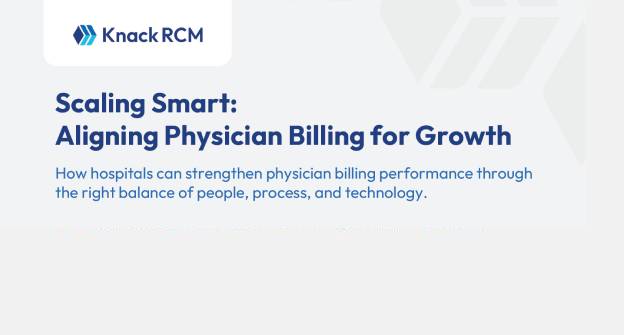4 Challenges in Durable Medical Equipment Billing and How to Overcome Them

Durable Medical Equipment (DME) billing is unique among specialty healthcare billing. It comes with its own rules, regulations, and frequent policy updates. The complexity of the billing process can create challenges, slowing claims, causing denials, and making it harder for providers to get paid. The good news is that DME suppliers can navigate billing complexities with ease and improve their financial outcomes with the right approach.
DME Billing Basics
DME billing has many moving parts, from coding and compliance to insurance guidelines. Providers must follow Medicare and insurance guidelines while keeping the process smooth. Without a reliable system in place, claims can get delayed or denied and impact revenue.
Top Challenges in DME Billing and How to Fix Them
1. Keeping Up with Changing Regulations
One big challenge faced by DME billing is staying on top of policy updates. Medicare and private insurers frequently change their rules, making it hard to keep up.
How to Fix It: Working with a DME billing service can help. Look for a partner who specializes in DME. They have experts in the specialty who are able to stay on top of regulatory changes and adjust billing practices, so providers don’t worry about compliance issues.
2. Documentation Requirements are Key to Surviving an Audit
Missing or incomplete documentation can put providers at risk during audits. Each piece of equipment must have a qualifying medical diagnosis and supporting documentation that meets payer requirements. While claims may initially get paid, frequent audits mean that improper documentation can lead to recoupments.
How to Fix It: Partnering with a DME billing company ensures all documentation is reviewed and maintained properly before claims go out. Billing professionals know what payers look for and can help providers prepare for audits, reducing the risk of having payments taken back. As the saying goes in the industry, “just because you get paid, doesn’t mean you get to keep your money.”
3. Effective Denial Management
DME billing success relies on using the correct HCPCS codes and ensuring claims meet payer-specific requirements. Denials often occur due to incorrect modifier usage, missing prior authorizations, improper diagnosis coding, or failure to follow utilization guidelines.
How to Fix It: A strong denial management strategy requires expertise in HCPCS coding rules, modifier application, and payer policies. Understanding when to span dates, knowing which items require prior authorization, and following utilization guidelines can significantly reduce denials. A dedicated DME billing team can help providers navigate these complexities and improve claim acceptance rates.
4. The Administrative Burden on Providers
Handling DME billing in-house requires an investment of time and resources. Staff must be well-trained and experienced in managing claim submissions, denial management, and follow- ups. The workload can quickly become overwhelming and shift focus from patient care.
How to Fix It: Outsourcing DME billing frees up staff, allowing them to focus on patients instead of paperwork.
Why a DME Billing Company is Worth It
A DME billing partner can make the process easier, helping providers get paid faster and reducing stress. Here’s how:
Fewer Errors: Billing specialists double-check everything before submission.
Better Compliance: Professionals stay updated on changing regulations.
Fewer Denials: Accurate coding and documentation mean fewer rejected claims.
Cost Savings: Outsourcing eliminates the need for extra staff and training.
DME billing is about staying ahead of the changes and avoiding common pitfalls. Partnering with a reliable billing service can help providers streamline operations, stay compliant, and boost revenue.
If billing is causing overload, outsourcing to experts is the best way to get paid faster and keep things running smoothly.
Recent Posts

Scaling Smart: Aligning Physician Billing for Growth
Read More
Scaling Without Breaking: How to Strengthen Physician Billing as Your Network Grows
Read More
From Overhead to Opportunity: Structuring RCM Teams for Hospital-Owned Success
Read More